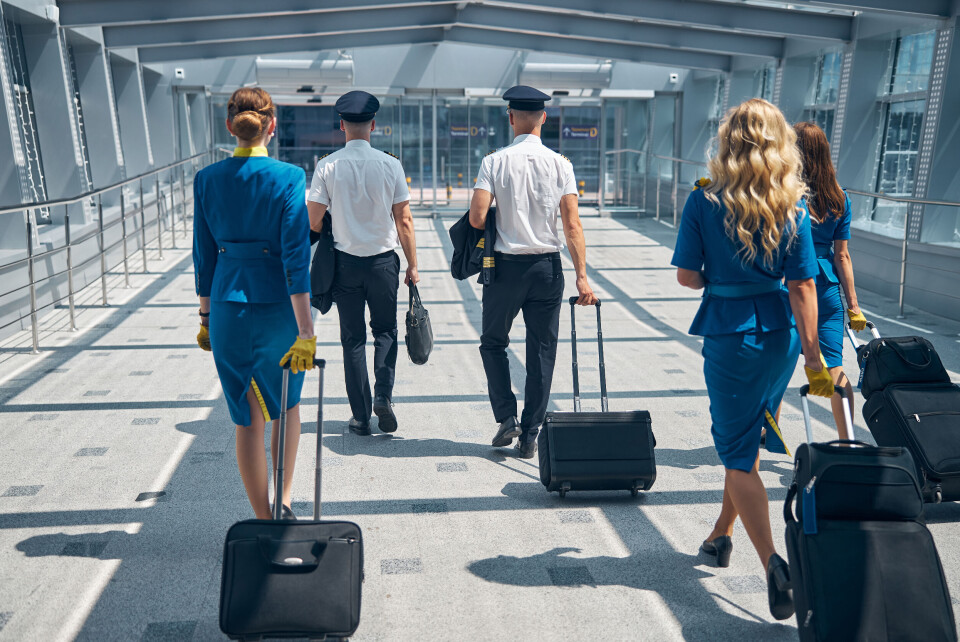-
Scam calls in France more than double in a year
Complaints about unsolicited calls are second only to those about fibre optic internet
-
‘Medical deserts’ major issue in upcoming local elections in France
Access to healthcare is now a more pressing concern than education, mayors say
-
‘Digital ID’ to be accepted at French airports this summer
Users of the France Identité app will be able to board certain flights using ID on smartphone
Widespread low-cost airline strikes loom, says French union
The industry appears to be recovering from the past two years – with tickets selling fast – but staff at Ryanair, EasyJet and Volotea have threatened action over staff shortages and pay

Aviation unions are warning that airline staff may take widespread strike action in the coming weeks as low-cost airline staff serving France express grievances over pay and working conditions.
Strike action and threats have already hit Volotea, EasyJet and Ryanair.
Ryanair began to see tensions on March 13 after company management reportedly planned to fire two flight attendants because they had consumed a company can of fizzy drink and a packet of crisps, worth €4.30.
Damien Mourgues, a delegate from the national flight attendant union le Syndicat national du personnel navigant commercial-Force ouvrière (SNPNC-FO) told Le Monde: “Flight attendants are paid the minimum wage, and we don’t get a meal allowance.”
He explained that unions are threatening a “very large, unlimited strike, with action on weekends and during holiday departures”, with Vueling’s union representative telling l’Humanité: “There will surely be waves of strike action on a larger scale.
“I hope that our actions and demands will go all the way: we are only asking for recognition and dignity in our work.”
A Ryanair union representative, also called Damien, warned: “If Ryanair continues to close its eyes, we will resort to a strike this summer, coordinating with other European countries. We have already had discussions with Belgium and Italy.”
A further Ryanair strike would follow an initial strike warning for March 13 to April 18, which led to a weekend of action on the part of Belgian Ryanair cabin crew between April 22 and 24, after unions accused the airline of failing to invest funds in acceptable working conditions.
Soutien à nos collègues RYANAIR belges en grève @CNEGNC @acvpuls #RyanairMustChange #RyanairStrike
— SNPNC Ryanair (@Snpnc_Ryanair) April 22, 2022
Ryanair’s personnel officer Darrell Hughes argued at the time that the CNE union representing the striking staff was causing unnecessary disruption, saying that it “should now be working with Ryanair to deliver negotiated solutions instead of engaging in this premature and pointless strike.”
Mr Morgues said that for a company that allegedly has “a ‘war chest’ of €4billion”, “it is not a very generous approach”.
At Volotea, action began after the management said it wanted to reduce pilots’ pay. Staff responded by striking for two weekends.
Another SNPNC strike notice issued for Volotea staff and lasting between April 15-30 has now been extended to May 31.
The SNPNC has said that it has held some meetings with EasyJet cabin crew and HR teams, but has not yet published the results of these discussions.
A further notice regarding Vueling employees and calling for better pay and working conditions was supposed to run until May 9, but with 98% of staff in favour of taking action, the company has promised to offer pay rises of €150 per month minimum, rather than €150 maximum.
Staff demand
Staff and pilots are currently in a strong bargaining position as demand for their roles is high.
Before the pandemic, the International Air Transport Association (IATA) said that the industry would need 500,000 more pilots to meet demand. During the pandemic, companies stopped recruitment but now, as activity restarts, the industry is seeking to strongly increase employment again.
In 2022, Transavia has already recruited 500 new pilots on Air France salaries, and is especially taking on pilots from other companies “who have already been trained”.
As well as pay, working conditions are also high on the agenda.
Unions have threatened to mount a coordinated strike across Ryanair, EasyJet and Volotea as a “nuclear weapon” that it will deploy “during holiday departure” times.
“The strike call has been suspended until mid-May”, said William Bourdon, SNPNC union leader at EasyJet.
Industry recovery
It comes as the airline industry appears to be recovering sharply after the past two years, with low-cost carriers especially reaping the benefits as passengers rush to make up for a lack of travel.
Transavia France said that the “pace of ticket sales is outstripping capacity”, despite it having increased capacity by 50% compared to 2019, with director Nicolas Hénin saying: “Prices for July and August are still comparable to those of 2019, before the crisis, and even slightly lower for June.”
Yet, Air France said that the “strong trends for July and August” will mean it will be forced to raise prices across the summer “peak”.
Even forecasts of high costs of fuel do not appear to be dampening sales.
Ryanair is already in full swing for the summer season, and is offering more than 900 weekly flights across 120 destinations from its Dublin hub. Volotea is selling five million seats, which is 99% more than it sold in 2021, and even 54% more than its activity pre-pandemic, in 2019.
EasyJet director-general, Johan Lundgren, even said in mid-April: “We are convinced that our plans will allow us to get close to 2019 flight levels this summer, and emerge as one of the winners of the post-Covid comeback.”
Related articles
'Passport date issue stopped our travel UK to France and elsewhere'
French airline passengers face 20% rise in fares due to fuel costs
Air France raises prices: Will Ryanair and EasyJet follow?
























